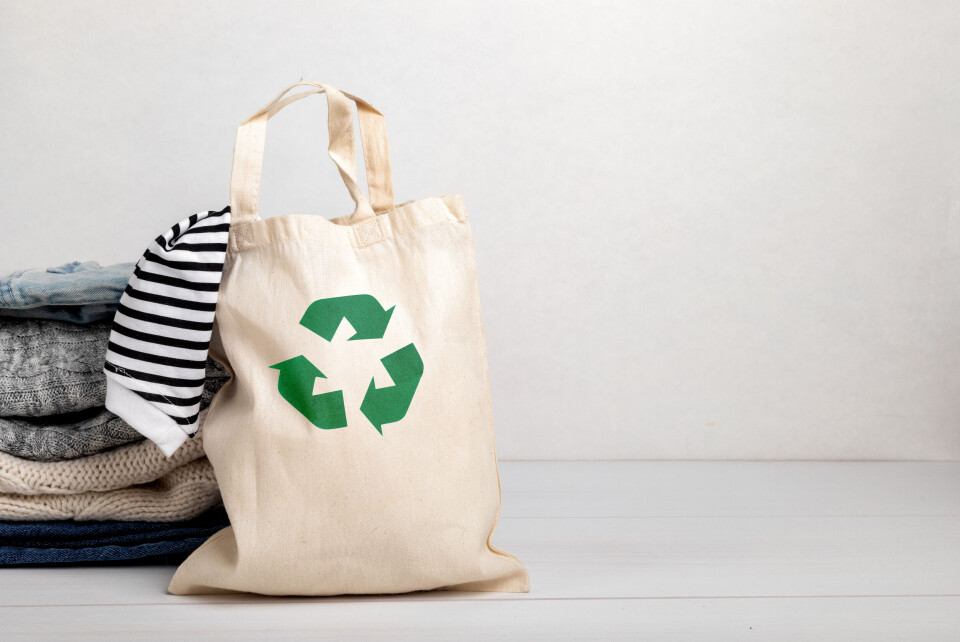-
France impacted by EU approval for €3 tax on small parcels from outside the union
Tax could coincide with separate French fees for parcels says Finance Ministry
-
Winegrowers outraged by €0.01 bottle of wine in French supermarket
Lidl claims labelling error but local farmers’ union says it threatens local production
-
Farmers block roads and clash with police in Occitanie over cow culling order
A75 blocked by around 100 tractors with protests set to continue into weekend
Eco-scores, bonuses: France looks to make fashion more sustainable
The government is meeting with clothes and textile industry representatives over the next month in a bid to ‘define the first step on the [eco-friendly] textile roadmap’

Clothes in France could soon become more eco-friendly and sustainable, after the government said it wants to introduce a ‘sustainable textile bonus’ for clothes and shoe manufacturers.
Representatives from the textile industry are meeting with Junior Ecology Minister Bérangère Couillard, throughout the month of October, in a consultation that she called “unprecedented”.
The goal will be to find ways to make the sector more sustainable and eco-friendly.
Those invited include representatives from the textile industry and clothes distribution sector such as l’Alliance du commerce, which is made up of major brands like H&M, Kiabi, and Monoprix.
Representatives from consumer associations, recycling federations, environmental organisations and NGOs will also be present.
Ms Couillard told FranceInfo: “For four weeks, we will meet to define together the first step of the textile roadmap for the next six years. This consultation is a first for France and Europe.”
Figures from the French environment and energy management Agency Ademe (Agence de l'environnement et de la maîtrise de l'énergie) show that the textile industry is responsible for 20% of commercial water pollution and 8% of global greenhouse gas emissions.
This means that making one 1.5kg coat emits almost as much CO2 as a car driven over 450 km. To address this, the government may implement one or several targeted measures.
A bonus system?
The consultation will help the government to draft a decree on the issue, which is set to be published at the beginning of November this year, and come into force in 2023.
This could introduce a series of financial bonuses for companies whose textile products are sustainable, those that include recycled materials, and those that are designed to last longer.
This money may come from the ‘eco-contribution’ fund, which textile sellers currently pay to finance disposal of their products.
And yet, the co-founder of eco-friendly clothing brand Loom, Julia Faure, has said that the idea of matching financial incentives with brand behaviour is not new.
Brands already have to pay eco-contributions on products, she said, but the contribution for textiles is just six cents per item, meaning that companies often prefer to just pay it rather than overhauling their manufacturing methods.
Ms Faure has instead called for an eco-contribution of €5 per item for brands with the worst practices.
But no fines
The government has so far said that it will not introduce fines for companies that pollute the most.
Ms Couillard said: “We don’t know, technically, what or who we would fine. Poorly designed products? The majority of products would be affected. Applying a fine to everyone wouldn’t be very positive or effective.”
This is why, she said, the government wants to focus on companies making positive steps.
However, Marie Nguyen, co-founder of We Dress Fair, which lists ethical and eco-responsible clothing brands, said: “We can’t change the industry if we continue to import poorly designed products from abroad.”
Ms Couillard said that the month-long consultations will also discuss how companies can better showcase their sustainable products. This could include an app that shows the most sustainable options, or even require a separate display in shops.
More recycling
The government is also aiming to double how many clothes are collected for recycling within the next six years. This will focus especially on rural areas, where collection points are harder to come by.
Read more: Home goods, clothes: How to find best places to recycle in France
Ms Couillard said: “Today, 400,000 tonnes of textiles are thrown away every year in France. This equates to two-thirds of our textile waste.”
Instead, she said that the ministry wants to recycle two-thirds of this clothing instead, with the remaining third placed in charity bins to be sent to struggling communities in Africa.
The government has also spoken about the development of ‘reuse’ channels, by offering more funds to companies that repair and put recycled textiles back on the market. A fund of several tens of millions of euros will be dedicated to this fund, the ministry has said.
For clothes that cannot be repaired and resold, the government wants to make recycling easier so that the textiles can be “remade”.
The minister has said that the government’s objective is to recycle 80% of used textiles by 2027.
However, Ms Faure said that France must change the fibre that it makes in order to keep its manufacturing sustainable. She said: "In France, we know how to make fibre from cotton, but not from polyester.”
Ms Nguyen also remained sceptical, saying that the quantities of clothing remain too large to hit the targets. She said: “If we continue to produce more than 100 billion garments per year [globally], we won't make it," sighs Marie Nguyen. “We also need to talk about simplicity and frugality in fashion."
Environmental clothes score
It comes after France aimed to introduce an ‘environmental impact’ score on clothes in 2020, with a view to giving an A to E mark to all items within the next two years.
Currently, the score is voluntary.
At the time, Séverine Mareels, sustainable development director at children’s clothing brand Okaïdi, told FranceInfo: “[The scoring system] forces us to think differently, to think more about the style of the product, avoid waste, to transport differently, maybe using shipping by sea [instead of planes].”
Related articles
Jean genies resurrect French family clothing business
























